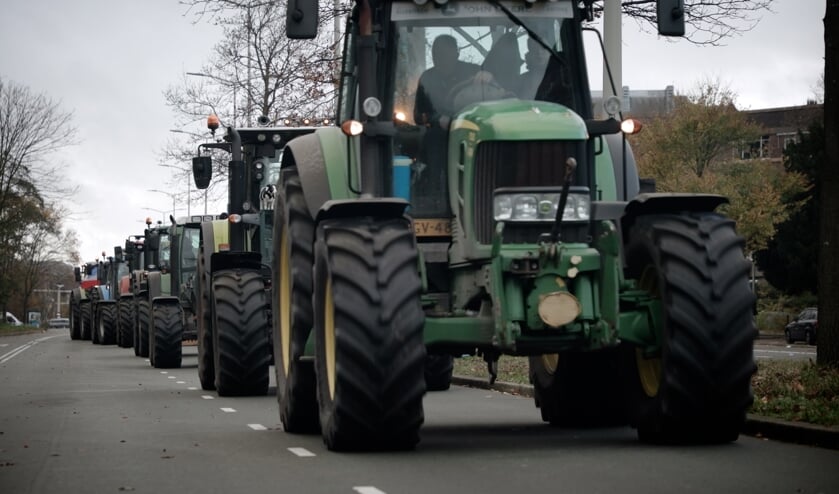KOTWIJKERBROEK / OENE Public broadcaster BNNVARA starts Monday evening March 22 with the four-part documentary series ‘De Boerenrep given’. The focus is on a reconstruction of the foot-and-mouth disease crisis that broke out in the Netherlands twenty years ago. The starting point this time is not Kootwijkerbroek, but Oene.
The reason is that the first FMD suspicion was established on March 17, 2001 on a farm in Oene in the northeastern Veluwe. All calves and goats on the farm were killed immediately. Under the leadership of the then Minister of Agriculture Laurens Jan Brinkhorst, the government immediately initiated a ‘war script’ to combat the animal disease. This led to the preventive culling of 270,000 – mostly healthy – animals and ultimately an economic loss of three billion euros.
DISTRICT PANTS In Kootwijkerbroek, where a suspicious blood sample was found in a calf in April 2001, there were more than 60,000 on 227 farms. To this day, many Kootwijkerbroekers are convinced that this decision was taken on unsound grounds. This is because only one suspicious sample was found, while FMD is a highly contagious animal disease. The substantiation also rattled on all sides, according to scientists. Nevertheless, the Board of Appeals for the business sector gave the national government in January last year.
Mistrust According to BNNVARA, ‘De Boerenrepublic’ reconstructs the FMD crisis with those directly involved and examines how the anger and distrust of the government at the time have an effect on the peasant protests of today. “How did it get this far?”
REDUCING LIVESTOCK After the FMD crisis, the cabinet concluded that there was no room in the Netherlands for the intensive way in which animals are kept. The Wijffels committee proposed drastically reducing livestock numbers. Twenty years later nothing came of this. The number of animals kept in the Netherlands has remained virtually the same, but the number of farmers has halved.
DEMONSTRATIONS Many of the remaining farmers are angry, as they have recently shown through mass demonstrations. Under pressure from the environmental movement and increasingly strict requirements from the government, they feel that their right to conduct their business freely.
In the documentary series by Hans Hermans and Martin Maat, farmers from Oene, partly supported by private recordings from 2001 that have not been broadcast before, tell in a penetrating way what happened in the three months that the area was closed off from the outside world.
BRINKHORST In addition, after twenty years, former minister of agriculture Brinkhorst looks back frankly on the biggest crisis of his career. “What I got is that, after twenty years, we must finally have the courage to tackle intensive agriculture fundamentally,” he says in “The Peasant Republic”.
Brinkhorst said in January last year in current affairs program Nieuwsuur that he still supported the decision for the culls in Kootwijkerbroek. “The only thing I may regret is that sometimes I do too little empathy had.’’
The Farmers Republic is a co-production of BNNVARA and ICU Documentaries. The first part will be broadcast on Monday evening March 22, from 8.30 pm on BNNVARA on NPO 2.
–


